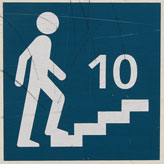
10 Steps To Cut Your Cancer Risk
There might not yet be a cure for all forms of cancer – but there is a huge body of research that shows you can reduce your risk of developing it in the first place.
We have sifted through the most recent studies on how you can cut your risk of various cancers, so that you can arm yourself with the very latest information on how to protect yourself. 
1 - Drink Green TeaGreen tea has major anti-cancer benefits. In trials carried out at the Arizona Cancer Centre, US, catechins (antioxidant phytochemicals) found in green tea were shown to boost the production of liver enzymes that neutralize carcinogens. Just two cups a day can cut your risk of digestive cancers by 32 per cent, while studies have indicated that green tea can also reduce your risk of skin, lung, kidney and liver cancers. 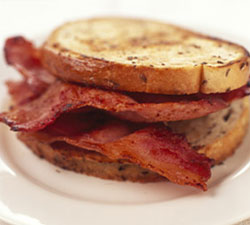
2 - Junk The Bacon SandwichesIn fact, you should cut out all processed meats from your diet. Processed meats such as ham, bacon and sausages increase the risk of bowel cancer (eating just 50g a day increases your risk by 21 per cent) and potentially cancers of the oesophagus, lung, stomach andprostate.
Salt, which is often added to processed meats, may also play a role. For that reason, stick to 6g or less of salt a day. And be wary of red meat – a palm-sized portion about five times a week is fine, but more than that might increase your risk of bowel cancer. 
3 - Don't Binge DrinkAlcohol has been linked to increased risk of breast, liver and bowel cancers because it mimics oestrogen in your body and because carcinogenic chemicals are formed when your body breaks down alcohol.
It's estimated that each drink you have daily increases your risk of breast cancer by 2 per cent, but new Danish research says that alcohol drunk in binge-drinking episodes is twice as dangerous as the same amount drunk over a week. 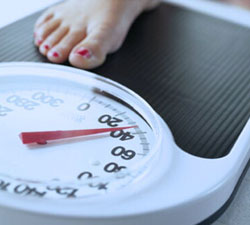
4 - Watch Your WeightWeight is closely related to your cancer risk. Being moderately overweight increases your risk of colon cancer by 31 per cent (being obese ups it by 49 per cent), and breast-cancer risk can as much as double in women who gain more than three stone.
But don't try to be size zero. 'Being very thin prior to the menopause or under 50 is also linked to increased breast-cancer risk. 'It makes your breasts more dense – and dense breasts have a fourfold higher breast-cancer risk.' It makes sense to maintain a healthy weight for your height. 
5 - Make Time For Daily Exercise'The greatest evidence is for its protection against bowel and breast cancers,' says Dr Julie Sharp, science information manager at Cancer Research UK.
Exercise is effective partly because it reduces weight, but it also reduces levels of hormones that cancers need to grow, such as oestrogen.
How much exercise should you do? The report recommends 30 to 60 minutes a day. 'Try to do as much as you can,' says Dr Sharp. 'The more you do, the greater the protection'. 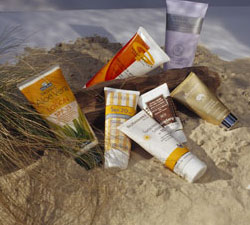
6 - Don't Forget Your SunscreenDermatologists at the Medical University Of Graz, Austria, looked at 420 people – half of them long-distance runners – and found that 24 of the runners needed referral for treatment for skin cancer, compared with 14 of the non-runners, and that the runners had more abnormal moles and lesions.
So, next time you're heading out for a run, slap on sunscreen – particularly on your legs, where melanoma most commonly appears on women. Water-resistant sunscreens are best because they don't disappear when you sweat. 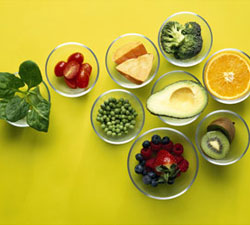
7 - Eat The Right Foods Eating at least five portions of fruit and vegetables a day is a major protection factor, with raspberries, carrots, blueberries and broccoli and cabbage. Here are some more foods to load up on.
Milk: drinking one cup of skimmed milk a day cuts your risk of ovarian cancer by 40 per cent, say researchers at the University of Hawaii.
Dairy products (especially when combined with vitamin D) are also linked to a lower risk of developing colorectal cancer.
Eggs: women consuming six eggs a week cut their risk of breast cancer by 40 per cent, say researchers at Oregon University, US. 
8 - Avoid Traffic FumesA recent study found that women who live in cities are one-and-a-half times more likely to get breast cancer than women who live in the country. Traffic fumes are also linked to increased risk of lung cancer.
Easy avoidance strategies include closing windows if you live or work on a busy road or are driving in heavy traffic. If you walk to and from work, choose less busy roads – especially in the morning. 
9 - Stop WorryingPeople who worry excessively have a 50 per cent higher risk of early death from all causes, including cancer, says a recent study by psychologist Dr Daniel Mroczek at Purdue University, US. 'Stress and worry release hormones into your body that may have harmful effects. And when people worry, they're more likely to engage in cancer-linked behaviors such as smoking.' 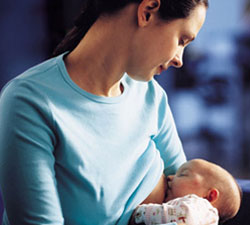
10 - Keep breastfeedingBreastfeeding for at least six months has been shown to reduce risk of both breast and ovarian cancer by about 7 per cent for every baby you feed. |
